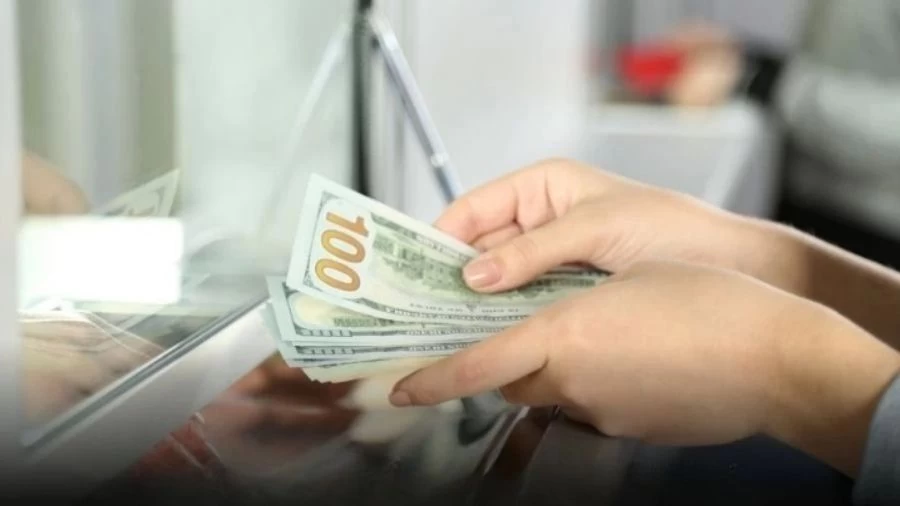
- Home »
- Quarterly Results »
- Best Place to Exchange Currency in 2025, How to Exchange Currency?
Best Place to Exchange Currency in 2025, How to Exchange Currency?
Find the best places to exchange currency in 2025. Compare banks, forex dealers, online platforms, and airport exchanges. Learn how to get the best exchange rates and avoid hidden fees.
Published Aug 08, 2023 | Updated Oct 22, 2025 | 📖 5 min read
How to Exchange Currency?
For travelers, exchanging currency efficiently is crucial to avoid high fees and unfavorable rates. It's recommended to convert currency before the trip at banks, credit unions, online bureaus, or currency converters, as these options often provide convenient and cost-effective services.
Additionally, while abroad, using foreign ATMs is a recommended method for currency conversion, ensuring better rates and lower fees compared to kiosks at hotels or airports. Furthermore, credit and debit cards from issuers that waive foreign transaction fees can be a convenient and cost-efficient way to make purchases overseas.
Best Place to Exchange Currency
Efficiently managing currency exchange during international travel is essential to avoid fees and unfavorable rates. Optimal choices include banks, credit unions, and online bureaus, with local banks often offering the best rates. Utilizing no-foreign-transaction-fee credit cards and informing financial institutions about travel plans enhances financial convenience and security.
1. Banks, Credit Unions, and Online Currency Exchange Bureaus:
Banks, credit unions, and online currency exchange bureaus offer convenient and cost-effective currency exchange services. Local banks and credit unions usually provide the best rates, while major banks like Chase or Bank of America offer the additional benefit of overseas ATMs.
2. Exchanging Currency at Home and Overseas:
To get the best exchange rates, start by checking reputable currency exchange websites. Local banks and credit unions are usually the best places for currency exchange. Major banks with overseas ATMs and online bureaus like Travelex are also reliable options. Avoid exchanging currency at airport kiosks or hotels, as they often have poor rates and high fees.
3. Using Credit vs. Cash for Foreign Transactions:
For foreign transactions, it's recommended to use a no-foreign-transaction-fee credit card and a no-foreign-fee debit card. Major credit card issuers like Chase, Bank of America, and Capital One offer specific cards without foreign transaction fees. Before traveling, inform your bank and credit card companies about your plans to avoid potential issues.
4. Alternative Conversion Options
Avoid paying in U.S. dollars abroad, as merchants may offer disadvantageous conversion rates and charge fees. When returning to the U.S., transfer any leftover foreign currency to dollars at your bank or credit union. Consider using ATMs within the destination country for cash. If you have foreign currency left before departing, convert it at an airport kiosk or store as a last resort.
What Affects a Currency Exchange Rate?
Several factors influence currency exchange rates, including economic indicators, interest rates, geopolitical events, and market speculation. Economic conditions of a country, such as inflation, unemployment, and GDP growth, play a significant role.
Changes in interest rates can attract or repel foreign investors, impacting currency values. Geopolitical events, like elections or trade agreements, create uncertainty, affecting currency values. Additionally, market sentiment and speculation can lead to short-term fluctuations in exchange rates.
Which Banks Offer Free Foreign Currency Exchange Services?
When it comes to exchanging currency, banks are often seen as expensive options. However, some major and regional U.S. banks break this trend by offering low-cost or even free foreign exchange services. Let's explore a few of these banks and the features they provide for those looking to exchange currency without hefty fees.
1. Bank of America
Bank of America enables existing customers with a checking or savings account to order foreign currency without additional fees, except for a $7.50 delivery charge on orders below $1,000.
2. Citi
Citi's World Wallet Foreign Exchange Service offers over 50 currencies with no fees for Citigold clients or those with a Citi Priority Account Package; other account holders face a $5 fee for orders under $1,000.
3. PNC Bank
PNC Bank, operating in around 27 states, provides a fee-free currency exchange service with competitive rates, targeting account holders seeking convenient and reliable foreign currency options.
4. U.S. Bank
U.S. Bank offers account holders a user-friendly online or in-branch foreign currency exchange service, with a $10 exchange fee for orders under $250 and no charge for larger orders. Delivery to a chosen local branch adds flexibility.
Is Foreign Currency Accepted by Banks in the US?
Yes, some banks in the US do accept foreign currency, but there are some important considerations. Standard US bank accounts, such as checking or savings accounts, are typically designed to hold and transact in US dollars (USD). However, some US banks offer specialized account products that allow you to hold and exchange foreign currencies.
Additionally, non-bank providers, specializing in currency services, may offer more flexibility and a broader range of currencies in a single account. Eligibility requirements and the acceptance of applications from US persons or non-residents vary among different banks and providers.
If you are looking to manage foreign currencies, whether for travel, international business, or investment, it's essential to explore the options available, including both traditional banks and alternative providers like Wise.
Where Shouldn't You Exchange Currency?
When looking to exchange currency, it's advisable to avoid certain places to ensure you get the best value for your money. Here are some locations you might want to steer clear of:
1. Airport Kiosks and Stores
Airport kiosks are known for charging high fees and offering unfavorable exchange rates, making them less cost-effective. Planning ahead and exploring alternative options before reaching the airport can save you money. However, when returning to the U.S. with foreign currency, airport kiosks might be the only option available.
2. Traveler’s Checks and Prepaid Debit Cards
Both traveler's checks and prepaid debit cards often come with various transaction fees and charges, making them less efficient and cost-effective. Additionally, prepaid debit cards may have card fees, foreign transaction costs, and ATM-use charges. Consider more economical alternatives for currency exchange.
Best Place to Exchange Currency - FAQs
1. Are airport kiosks a good place to exchange currency?
No, airport kiosks generally charge higher fees and offer less favorable exchange rates.
2. Should I use traveler's checks for currency exchange?
No, traveler's checks are not efficient and often involve various transaction fees.
3. What's the advantage of exchanging currency at a local bank?
Local banks usually offer competitive rates and minimal fees, providing cost-effective currency exchange.
4. Can I exchange currency at my own bank before a trip?
Yes, exchanging currency at your own bank before your trip allows you to benefit from favorable rates and minimal fees.
5. Are online currency converters a reliable option for exchange?
Yes, online currency converters, such as Travelex, provide convenient and reliable foreign exchange services.




